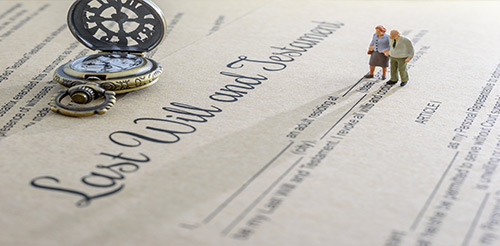If you’re like most people, you have the best of intentions with regard to how you want your estate distributed when you die or your affairs handled should you become incapacitated. Unfortunately, without proper planning, your best intentions may not be enough. Over the next few articles, we will discuss six of the most common estate planning mistakes people make. Here are the first two:
- Failing to plan. The biggest mistake we see is failing to create a plan in the first place. Without an estate plan, your assets will be distributed according to Michigan state law. Usually, if you are married, your spouse is entitled to a portion of your estate and the rest is divided among other relatives. If you are single, your estate may go to your children, parents, or siblings. If you have absolutely no living relatives, then your estate will go to the state. This is probably not what you want to happen to your assets. In addition, without an estate plan, you have no way to name who will be the guardian of your children or who will act for you if you become incapacitated.
We know going to an attorney and talking about your estate is not anyone’s idea of fun. But the failure to put in place a well thought out estate plan will, almost always, lead to unnecessary costs and stress for your loved ones after death or incapacity.
- Doing it yourself. It is tempting to try to “save money” by using a do-it-yourself online estate document service or just writing something up yourself, but these poorly drafted documents may only cost you or your heirs additional money in the end. It is impossible to know, without a legal education and years of experience, what the right legal solution is to any particular situation and what planning opportunities are available. If there is anything about a family situation that’s not commonplace, using a DIY estate planning program means taking a large risk that can affect one’s family for generations to come. And only an attorney can determine whether a particular situation qualifies as commonplace. The problems created by not getting competent legal advice probably won’t be borne by the person creating the will, but they may well be shouldered by the person’s children and grandchildren.
No matter what you have heard, there is no such thing as a “one-size-fits all” estate planning document. We see every day that the attempt to “save money” by drafting your own estate planning documents consistently results in costly attorney intervention after death or incapacity.
In the next article, we will discuss two more common mistakes: Not Planning for Disability and Failing to Fund a Trust.
To ensure that you’re not making these and other common estate planning mistakes, give us a call today for an office or home-visit.





